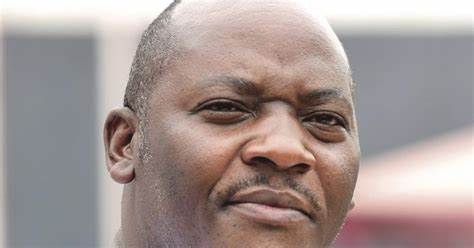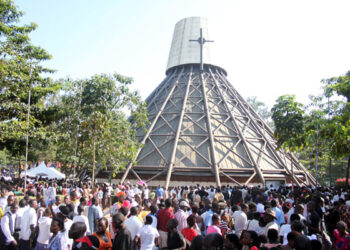In what can only be described as a puzzling and potentially disastrous move, the Democratic Party Bloc has decided to position Mathias Mpuuga as their front-runner for the 2026 presidential race. Once a party with a rich history of political integrity and a formidable presence on Uganda’s political scene, the DP Bloc has now become a shadow of its former self. Led by figures such as Michael Mabikke and Samuel Walter Lubega Mukaaku, the group has placed its bet on a leader with a tumultuous political past and questionable credibility. But is this endorsement a strategic maneuver to consolidate the opposition, or just a desperate attempt to cling to fading relevance?
The DP Bloc’s backing of Mpuuga—a politician known for his opportunistic tendencies—raises critical questions about their direction and long-term strategy. Mathias Mpuuga’s political journey has been marked by frequent party switching and an image of inconsistency. A former stalwart of the Democratic Party, he jumped ship to join Bobi Wine’s National Unity Platform (NUP) in a bid to align himself with Uganda’s youthful opposition movement. Though he initially found success, rising to become Leader of the Opposition, Mpuuga’s tenure was marred by internal disputes, perceived inaction, and ultimately, a loss of favor within the NUP ranks. This sequence of events has left Mpuuga with the reputation of a political figure whose loyalty and principles are as malleable as clay.
For the DP Bloc to elevate Mpuuga as their flagbearer is, at best, a risky wager and, at worst, a political miscalculation. The choice of Mpuuga—whose leadership has been characterized by a series of opportunistic alliances and factional disputes—reflects poorly on the Bloc’s judgment. While his name still carries some weight in the opposition circles, his reputation as a reliable leader is tainted. With every political shift, Mpuuga’s credibility has taken a hit, leaving many wondering if he can inspire the trust and confidence needed to unify a fragmented opposition and challenge the entrenched NRM regime.
This latest endorsement, unveiled in a much-hyped rally at Namirembe, was underwhelming at best. The so-called “man of the hour” was notably absent from his own endorsement event, leaving a crowd of paid supporters wearing branded T-shirts and holding placards in his name. The conspicuous absence of Mpuuga at such a pivotal moment was a clear indication of either a lack of commitment or an intentional distancing from a campaign that he may already perceive as a sinking ship. It’s hard to fathom how a candidate who cannot be present to accept such a major endorsement can hope to rally the support of a nation.
The rally itself, organized by Mabikke and Mukaaku, did little to boost confidence in the DP Bloc’s leadership. Both men are themselves controversial figures within Uganda’s political landscape, having failed to build credible political legacies. Mabikke’s Social Democratic Party was, by all measures, a failure, never gaining any significant traction or influence. Mukaaku, once a fervent supporter of the People Power movement, has become a relic of a bygone era, desperately trying to remain relevant. These leaders’ decision to back Mpuuga could be seen as a final grasp at salvaging their waning influence, banking on Mpuuga’s residual clout to lift them out of obscurity.
While some might argue that Mpuuga’s experience in the opposition ranks could lend stability to a chaotic opposition, his history of political maneuvering and perceived self-interest makes it difficult to see him as a unifying figure. His candidacy risks further deepening the opposition’s fragmentation, as many within the NUP and other opposition groups still view him with suspicion. Instead of presenting a fresh alternative to Uganda’s ruling regime, Mpuuga’s selection feels more like a recycling of the same old faces, with little in the way of new ideas or strategies.
In the end, the DP Bloc’s decision to nominate Mathias Mpuuga seems more like an act of desperation than a bold political strategy. Rather than positioning themselves as a rejuvenated force ready to challenge Museveni’s dominance, they have chosen a candidate whose image is marred by inconsistency and questionable political allegiances. Mpuuga’s candidacy is unlikely to galvanize the broad support necessary to mount a serious challenge, and this move risks further diminishing the Bloc’s already weakened standing. If the DP Bloc cannot redefine itself and attract credible leadership, they may find themselves relegated to the fringes of Uganda’s political narrative, a once-great party now left chasing shadows of its former glory.







Discussion about this post